第94章 CHAPTER XIII.(5)
The harpoon for hippopotamus and crocodile hunting is a piece of soft steel about eleven inches long, with a narrow blade or point of about three-quarters of an inch in width, and a single but powerful barb. To this short, and apparently insignificant weapon, a strong rope is secured, about twenty feet in length, at the extremity of which is a buoy or float as large as a child's head formed of an extremely light wood called ambatch (Anemone mirabilis), that is about half the specific gravity of cork. The extreme end of the short harpoon is fixed in the point of a bamboo about ten feet long, around which the rope is twisted, while the buoy end is carried in the left hand.
The old Abou Do being resolved upon work, had divested himself of his tope or toga before starting, according to the general custom of the aggageers, who usually wear a simple piece of leather wound round the loins when hunting, but, I believe in respect for our party, they had provided themselves with a garment resembling bathing drawers, such as are worn in France, Germany, and other civilized countries; but the old Abou Do, like the English, had resisted any such innovation, and he accordingly appeared with nothing on but his harpoon; and a more superb old Neptune I never beheld. He carried this weapon in his hand, as the trident with which the old sea-god ruled the monsters of the deep; and as the tall Arab patriarch of threescore years and ten, with his long grey locks flowing over his brawny shoulders, stepped as lightly as a goat from rock to rock along the rough margin of the river, I followed him in admiration.
The country was very beautiful; we were within twenty miles of lofty mountains, while at a distance of about thirty-five or forty miles were the high peaks of the Abyssinian Alps. The entire land was richly wooded, although open, and adapted for hunting upon horseback. Through this wild and lovely country the river Settite flowed in an ever-changing course. At times the bed was several hundred yards wide, with the stream, contracted at this season, flowing gently over rounded pebbles; the water was as clear as glass; in other places huge masses of rock impeded the flow of water, and caused dangerous rapids; then, as the river passed through a range of hills, perpendicular cliffs of sandstone and of basalt walled it within a narrow channel, through which it rushed with great impetuosity; issuing from these straits it calmed its fury in a deep and broad pool, from which it again commenced a gentle course over sands and pebbles.
At that season the river would have been perfection for salmon, being a series of rapids, shallows, deep and rocky gorges, and quiet silent pools of unknown depth; in the latter places of security the hippopotami retreated after their nocturnal rambles upon terra firma. The banks of this beautiful river were generally thickly clothed with bright green nabbuk trees, that formed a shelter for INNUMERABLE guinea-fowl, and the black francolin partridge. Herds of antelopes of many varieties were forced to the river to drink, as the only water within many miles;but these never remained long among the thick nabbuk, as the lions and leopards inhabited that covert expressly to spring upon the unwary animal whose thirst prompted a too heedless advance.
Wherever there was a sand bank in the river, a crocodile basked in the morning sunshine: some of these were of enormous size.
Hippopotami had trodden a path along the margin of the river, as these animals came out to feed shortly after dark, and travelled from pool to pool. Wherever a plot of tangled and succulent herbage grew among the shady nabbuks, there were the marks of the harrow-like teeth, that had torn and rooted up the rank grass like an agricultural implement.